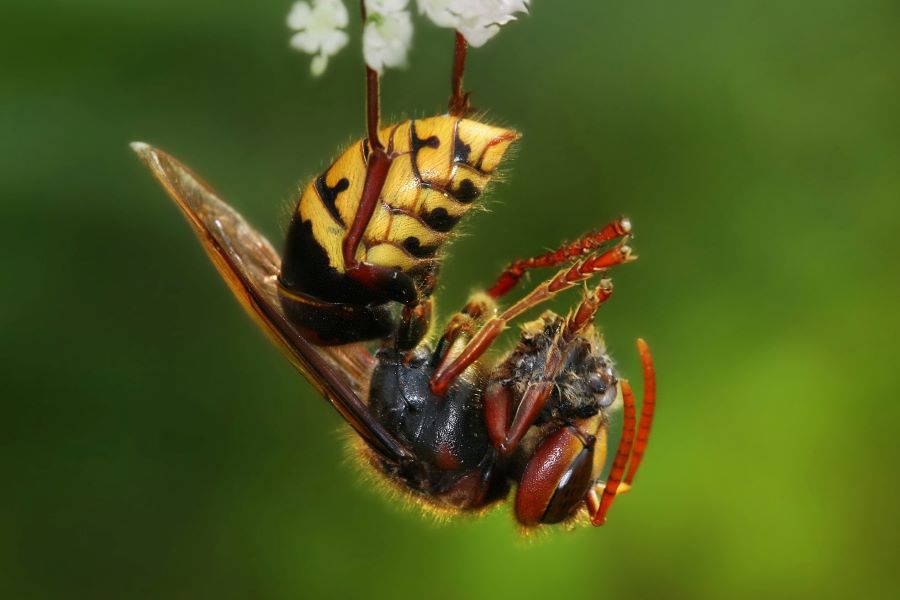Chinese Hornets come to America
Being two inches long, it is the largest hornet in the world. It is mostly harmless to humans unless you disturb their nests. They are most dangerous to honey bees. Commonly found in China these hornets found their way to the US in late April early May.
May 22, 2020
With the world in a state of panic because of COVID-19, we didn’t need more things to worry about. Unfortunately, in early May, we got the news that dangerous hornets from China are making their way to America.
A lot of people are worried about these hornets and how dangerous they are due to their painful stings and seemingly aggressive nature.
Even with the growing concern, Doug Yanega, the senior museum scientist at UC Riverside’s Entomology Research Museum who helped identify the hornets when they first entered the country, said, “‘It’s not an existential threat; it’s something that can be managed. You just have to know that they’re there and take the necessary steps.’” Yanega continued to explain that these Chinese Hornets are not that aggressive towards humans if you take the correct and necessary precautions.
Many don’t understand that most of the danger that these hornets pose is to other insects. To humans, there isn’t much danger. “‘European honeybees, which have long lived in North America, are not equipped to defend themselves against the Asian giant hornet. In Japan, where the hornet typically lives, Asian honey bees have evolved a defense mechanism,’ said Susan Cobey, a bee breeder with Washington State University’s Department of Entomology. ‘The bees make a massive ball around the hornet scouts and smother them to death with the heat of their beating wings.’” Furthermore, finding a Chinese Hornet is rare in the United States. With the first sighting in late December, there have been very few sightings of these hornets. “If we get through May and June and July and nobody has spotted any of these wasps, then we’re probably free and clear,” said Doug Yanega, a UC Riverside entomologist. “There is a reason for concern, but it’s not the level of threat that people think there is,” said Doug Yanega.
With these hornets in America, they can cause a lot of problems to people and wildlife. If we don’t take the right precautions to prevent them from harming people or insect wildlife.
With the worry of these hornets people should know that they aren’t naturally aggressive towards people and the only threat they pose is to the environment and different helpful insects.













![Students in Archaeology use tools in a mock excavation. As a class that focuses on hands-on learning, students are able to gain crucial life skills. “[The class] is more hands-on than I thought, and I'm learning way more with physical activities than I do in the classroom,” said student Tess Brown ‘25.](https://cavchronline.com/wp-content/uploads/2024/11/IMG_8390-e1733078359165-278x300.jpg)
